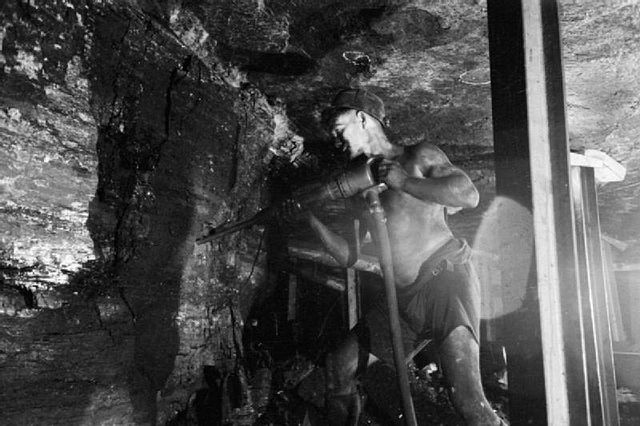Coal phase-out is an environmental policy intended to stop burning coal in coal-fired power plants and elsewhere, and is part of fossil fuel phase-out. Coal is the most carbon-intensive fossil fuel, therefore phasing it out is critical to limiting climate change as laid out in the Paris Climate Agreement. The International Energy Agency (IEA) estimates that coal is responsible for over 30% of the global average temperature increase above pre-industrial levels. Some countries in the Powering Past Coal Alliance have already stopped.
The Nanticoke Generating Station in Ontario, one of the largest power plants to be shut as part of Ontario's coal phaseout
On 30 December 2017, Emmanuel Macron signed a law planning the end of fossil-fuel extraction in French territories.
3,500–4,000 environmental activists blocking a coal mine to limit climate change (Ende Gelände 2016).
Coal is a combustible black or brownish-black sedimentary rock, formed as rock strata called coal seams. Coal is mostly carbon with variable amounts of other elements, chiefly hydrogen, sulfur, oxygen, and nitrogen.
Coal is a type of fossil fuel, formed when dead plant matter decays into peat which is converted into coal by the heat and pressure of deep burial over millions of years. Vast deposits of coal originate in former wetlands called coal forests that covered much of the Earth's tropical land areas during the late Carboniferous (Pennsylvanian) and Permian times.
Bituminous coal, the most common coal grade
Coastal exposure of the Point Aconi Seam in Nova Scotia
Coal miner in Britain, 1942
Coal production of the world in 1908 as presented by The Harmsworth atlas and Gazetter







